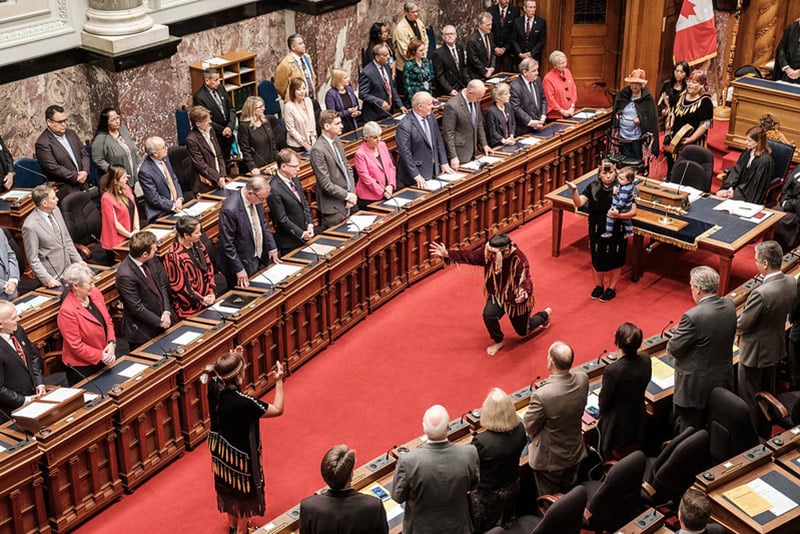Imagine if Parliament and the provinces were to pass a law requiring a top-to-bottom review of every law on the books to ensure each one complied with the rights of Indigenous peoples.
Imagine, too, that this law required that review to be done by the government together with Indigenous peoples themselves, with each side jointly identifying problems with existing laws and helping draft new laws to replace them. That would make news, right?
Wrong. Such a law would go almost entirely unnoticed by the Canadian public. It would elicit hardly any debate or even commentary from politicians and pundits. How do I know? Because the B.C. legislature passed such a law in 2019, and Parliament followed suit less than three months before the last federal election. Yet hardly anyone is talking about it.
Section 3 of B.C.’s Declaration on the Rights of Indigenous Peoples Act says that the government, in consultation and co-operation with Indigenous peoples, must take all measures necessary to ensure the laws of B.C. are consistent with the United Nations Declaration on the Rights of Indigenous Peoples. That provision became provincial law in November 2019.
Section 5 of the federal United Nations Declaration on the Rights of Indigenous Peoples Act imposes the same duty on the federal government: to ensure consistency between federal law and the declaration in consultation and co-operation with Indigenous peoples. That has been federal law since June.
The implications of these new laws are hard to overstate. The UN declaration is a historic, far-reaching international human rights instrument aimed at defining the rights of Indigenous peoples everywhere. It addresses such fundamental matters as Indigenous self-government, lands rights, resource development, education, law-making, economic and social conditions and treaty rights — in short, almost every area of Canadian law.
There is serious reason to think that many existing federal and provincial laws are not consistent with the declaration’s requirements. The B.C. and federal governments are now required by law to correct these inconsistencies.
How these governments intend, practically speaking, to live up to this commitment is unclear. The B.C. government has announced plans to create a secretariat to ensure that new laws and policies are consistent with the declaration. But no plan for reviewing and revising existing laws has yet been published.
Nor is there much movement federally. One federal government website titled “Why Implement the Declaration?” blithely observes that fully implementing the declaration is “generational work” — a statement that suggests federal officials are in no great hurry.
Indigenous peoples are unlikely to show the same patience. While most Canadians do not even know these laws have been passed, Indigenous leaders are well aware of them. There is growing frustration, especially in B.C., over the lack of government follow-through. B.C. and federal law both now require consistency with the UN declaration, yet so far little has been done to keep that promise.
That can’t go on forever. It is time for federal and B.C. officials to sit down with Indigenous leaders and develop a plan for reviewing and revising existing laws. To call the process “generational” is just kicking the can down the road. Indigenous peoples should not be expected to wait a generation for governments to live up to their own legal commitment to give effect to the UN declaration. There is a lot of work to be done. We need to get started.
The end result of the work, if successful, is likely to be a profoundly different collection of federal and provincial laws. Some laws may have to be scrapped altogether. Many others will need major overhauls. It is too soon to say exactly what changes will be needed — and we cannot know for sure until Indigenous peoples have had their say in the matter. But the changes are likely to be fundamental — possibly the most important changes to our law since the introduction of the charter and Aboriginal rights into our constitution in 1982.
Maybe we should talk about it? ![]()
Read more: Indigenous, Rights + Justice, Federal Politics

















Tyee Commenting Guidelines
Comments that violate guidelines risk being deleted, and violations may result in a temporary or permanent user ban. Maintain the spirit of good conversation to stay in the discussion.
*Please note The Tyee is not a forum for spreading misinformation about COVID-19, denying its existence or minimizing its risk to public health.
Do:
Do not: